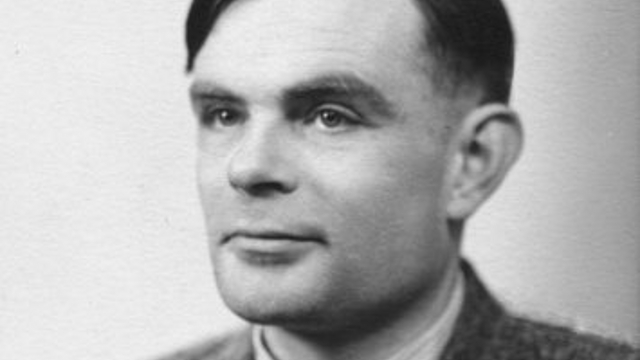Why Alan Turing is the father of computer science
Remembering a British genius

Today, on the 60th anniversary of Alan Turing's death, the internet and newsstands will be awash with articles praising one of our country's most important and influential people.
A man who is recognised as a British institution (although belatedly) and a homegrown genius, an accolade that is thrown around far too often but has never been so poignant for the father of computer science.
But the annual respect, admiration and acknowledgment that drives this article, and countless others, hasn't always existed for Alan Turing. For many years, up until as recently as 2012, much of his work was kept under lock & key by GCHQ because they were deemed too important and sensitive for public release.
His OBE for wartime services, awarded to him by King George VI, also didn't disclose what his OBE was for. Most of his work before and during the war, just as his life during that period, was kept under wraps to maintain a strategic advantage.
Ahead of his time
But Turing's work during that time, although kept out of public eye, could at least be shared with those with the right security clearance. He got to bask in the glory of a personal recommendation from Winston Churchill and his name was regularly associated with the word 'brilliant' in his GCHQ days (then known as GC&CS).
But one secret, his sexuality, wasn't shared with his colleagues, his superiors or anyone other than a lady he was briefly engaged too. The revelation of this secret, which became public after a police investigation into a separate matter, would unfairly tarnish his reputation in time of barbaric laws and ignorance.
A time when one's sexuality could result in a conviction and decimate a lifetime of brilliance and accomplishments.
Are you a pro? Subscribe to our newsletter
Sign up to the TechRadar Pro newsletter to get all the top news, opinion, features and guidance your business needs to succeed!
Thankfully those days are over and we can properly celebrate what Turing did for this country loudly and proudly. It will always be Britain's shame that he wasn't publicly celebrated for his work when he was alive, but we can - and in some ways have - made up for it now.
Aside from the long list of tributes, accolades, awards, articles, books, feature films and ultimate pardoning for his 'crime' by the British government last year, the main way we've celebrated Turing's achievements has been through continuing his work and realising his dream.
The father of computer science
Turing broke the German Navy, Airforce and Army Enigma codes and handed the allies an advantage in the second world war, which are rightly his most remembered and celebrated accomplishments.
But he's also the father of computer science and he significantly advanced the field of artificial intelligence, a phrase that hadn't even been coined until after his death. In a time when the first general purpose computers had just been built, Turing was already asking the question 'can computers think'?
It was that question that resulted in the Turing Test, which dictates that a computer can only be truly intelligent, or said to 'think', if a human interrogator can not tell it apart, through conversation, from a human being.
The Turing test is still considered a benchmark for charting the progression of A.I, although some question whether or not it's still relevant because no computer is has been able to score a passing mark.
His brilliance was exhibited when he created a chess computer programme for a computer that was yet to exist, when he then tried to install it on an existing computer it simply failed. Fast forward some 48 years to 1996 and you could imagine his joy if he'd been able to witness IBM's Deep Blue chess computer beating world champion chess player, Gary Kasparov.
Changing the world
The resultant effect of his work on the first computer are too long to list here, but it paved way for the technology that has changed the world and significantly improved the quality of human life. It has also radically changed our lives, we're now reliant on computers to provide us with answers and cure our problems.
Technology has become our de-facto conduit of truth, it has democratised news and been a facilitator of revolutions. The main principle of science - the pursuit of fact - is something that Turing abided by religiously.
His tireless pursuit of accuracy and obsession with obscure thought, what we would today call creativity, has become a defining characteristic of our country - as was his eccentricity and cliched 'nutty professor' character traits. When someone talks about our penchant for innovation and science, they always refer to either the Manchester Mark 1 or Automatic Computing Engine, the latter designed by Turing.
In 2014, countries around the world are battling it out to be crowned the number one 'innovation economy', with a huge focus on technology and creativity. Computers come in all different sizes and can do things that would've been deemed as magic in Turing's day.
What could have been
Countries like South Korea are also genuinely looking towards robots and artificial intelligence to solve the issue of an ageing population - all thanks to one simple question 'can a computer think?'.
Whilst his work on the first ever computer is often discussed, it is his advancement of the theory of artificial intelligence that I find particularly fascinating. You have to wonder what could've been of a man so ahead of his time if he hadn't met such a tragic end.
How much further, how many concepts and how much groundbreaking research could Britain have benefitted from if he'd been able to carry on his work? We'll never know. But the fact that we're asking that question is an indication of his brilliance.